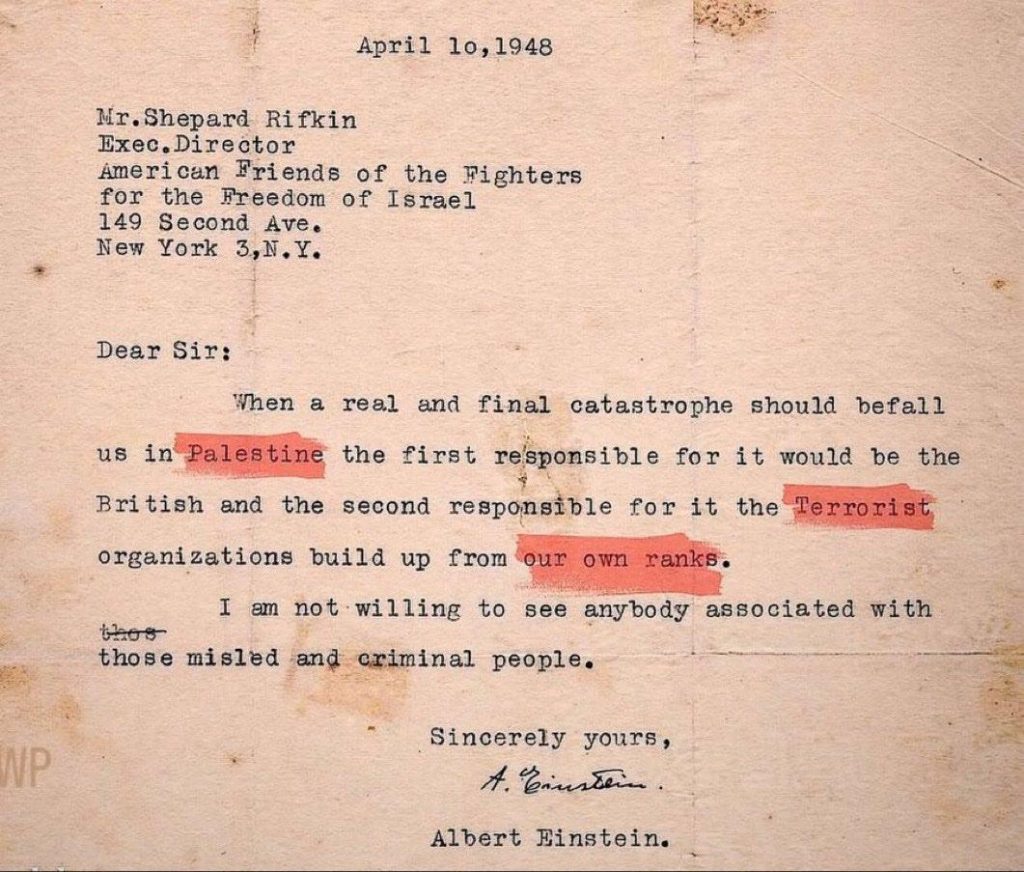
Einstein’s 1948 Letter Highlights Palestinian Plight
A recently resurfaced letter written by Albert Einstein in 1948 has stirred a renewed sense of urgency and relevance to the ongoing Palestinian struggle. The letter, which was addressed to the President of the Hebrew University in Jerusalem, is a scathing critique of British policies and Jewish militancy in Palestine, specifically in the aftermath of the Deir Yassin massacre. The massacre, which took place in April 1948, was a brutal attack by Jewish paramilitaries on the Palestinian village of Deir Yassin, resulting in the deaths of over 100 civilians.
In the letter, Einstein expresses his deep disappointment and disillusionment with the actions of Jewish militants, who he believed were using violence and intimidation to achieve their goals. He writes, “The bombs thrown at the innocent victims in Deir Yassin are the acts of a government that has lost its moral foundation.” Einstein’s words are a powerful indictment of the violence and injustice that Palestinians have faced for decades, and his critique of Jewish militancy echoes the Palestinian narrative of struggle and resilience.
The letter is particularly significant in light of recent events in Gaza, where over 40,000 people have lost their lives since 2023. The ongoing conflict and blockade have led to widespread human rights abuses, displacement, and poverty, and Einstein’s words take on a renewed sense of urgency in the face of such tragedy.
Einstein’s critique of British policies is also noteworthy, as it highlights the role of colonial powers in perpetuating the Israeli-Palestinian conflict. The British, who had been responsible for governing Palestine under a League of Nations mandate, had long been criticized for their biased support of Jewish immigration and their failure to address the rights of Palestinian Arabs. Einstein’s letter suggests that the British played a significant role in creating the conditions that led to the violence and displacement of Palestinians in the years leading up to Israel’s founding.
The letter also sheds light on the early tensions between Jewish and Arab communities in Palestine, which would eventually escalate into full-blown conflict. Einstein writes, “The Jewish people, who have lost so much in the course of their history, should not be complicit in the destruction of the Palestinian people.” This sentiment is particularly poignant in light of the ongoing efforts to achieve a two-state solution, which has been stalled for decades due to Israeli settlement expansion and Palestinian divisions.
Einstein’s call for coexistence and peaceful resolution is a powerful reminder of the importance of dialogue and diplomacy in resolving conflicts. His words are a testament to the enduring power of human empathy and compassion, and they serve as a powerful rebuke to those who would seek to perpetuate violence and division.
The resurfacing of Einstein’s letter is a timely reminder of the ongoing struggle of the Palestinian people and the need for continued advocacy and support. As the international community grapples with the complexities of the Israeli-Palestinian conflict, Einstein’s words offer a powerful reminder of the importance of justice, equality, and human rights.
In conclusion, Einstein’s 1948 letter is a powerful indictment of the violence and injustice that Palestinians have faced for decades. His critique of British policies and Jewish militancy serves as a reminder of the role of colonial powers in perpetuating the conflict and the need for continued advocacy and support. As Gaza faces over 40,000 deaths since 2023, Einstein’s call for coexistence and peaceful resolution takes on a renewed sense of urgency, and his words serve as a powerful reminder of the enduring power of human empathy and compassion.



